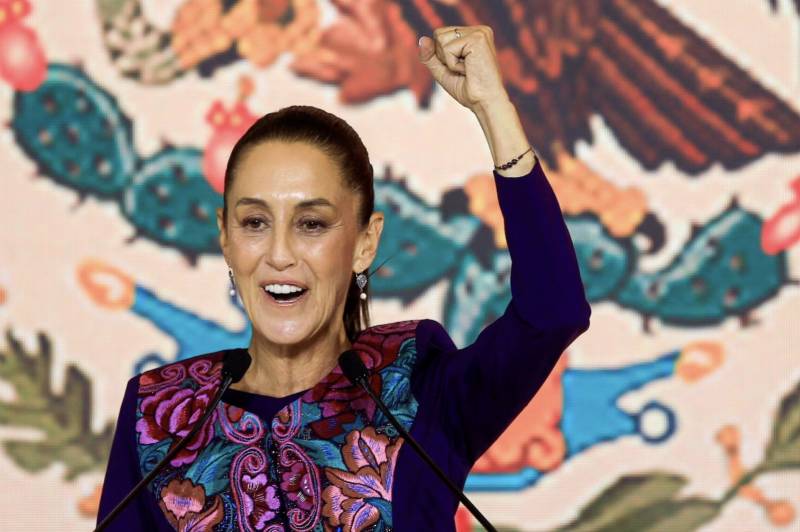
On June 2, Mexicans made history as they elected Claudia Sheinbaum as the country’s first female president. She secured nearly 60% of votes cast – the highest ever recorded for a candidate in Mexican history - and will succeed President Andres Manuel Lopez Obrador, known commonly as AMLO, in October of this year.
Sheinbaum, the 61-year old former mayor of Mexico City, is a member of AMLO’s Morena (or National Regeneration Movement) party and widely seen as his political protege.
She was a climate scientist before turning to politics, and contributed to the IPCC’s Fourth Assessment report on climate change in 2007 that won the Nobel Peace Prize.
Born into a family with Jewish heritage, Sheinbaum studied physics at the National Autonomous University of Mexico (UNAM), and later earned a Masters in energy engineering at the University of California, Berkeley in the United States. She returned to Mexico to earn her doctorate at UNAM. Her Jewish maternal grandparents immigrated to Mexico from Bulgaria when they were fleeing the Nazis, and her paternal grandparents are of Lithuanian heritage. She has condemned Hamas' attack on Israel, but has also called for the recognition of an independent Palestinian state.
The Mexican election
Nearly a 100 million voters were eligible to cast their votes for a total of 20,700 public offices, in an election marred by violence across the country.
Over 30 candidates for local offices were gunned down in the weeks leading up to the election, making the election the most violent in recent times.
Every Mexican President can only serve for a strict six-year term, often called the “sexenio.” Andres Manuel Lopez Obrador, a left-leaning populist from the southern state of Tabasco, was elected in 2018 with 53% of the vote, as Mexicans rejected the governing Institutional Revolutionary Party (PRI).
AMLO remains broadly popular across the country, and Sheinbaum’s landslide victory serves as a referendum of Morena and AMLO’s term in government. During his time in office, Lopez Obrador has doubled the minimum wage, overseen the strengthening of the peso and brought about reductions in poverty and unemployment.
Sheinbaum defeated Xochitl Galvez, a former senator representing the coalition of conservative parties Institutional Revolutionary Party (PRI) and National Action Party (PAN).
Sheinbaum's challenges in office
Experts are divided on whether Sheinbaum can chart out a political identity that is independent of her mentor, Lopez Obrador, and if she can rise to meet the challenges posed by the climate crisis, in a country that is grappling with drought and a water crisis, and Mexico’s fragile domestic security situation.
The country has seen nearly 30,000 homicides every year for the past five years, and there are over 100,000 missing people in the country. Mexico is also an incredibly dangerous place for women, with femicide rates having escalated in recent years.
Sheinbaum will continue to support the National Guard that Lopez Obrador created and empowered, but is likelier to rely more on policing support to suppress Mexico’s notoriously violent and powerful drug cartels.
President-elect Sheinbaum has also pledged continued support for some of Lopez Obrador’s controversial projects, including the Mayan train, a railway line running through pristine wilderness in the Yucatan peninsula, and has announced plans to continue subsidies for fossil fuel companies, including the state oil company Pemex.
Nonetheless, she has also announced plans for nearly $14 billion dollars in investment in wind and solar energy. Her climate science credentials have lead voters and experts into cautious optimism that Mexico can make faster progress on climate action goals under her leadership, and that climate action is where her policies will be the biggest departure from AMLO's.
Sheinbaum is widely expected to be more measured and data-driven in her decision making than Lopaz Obrador, who has cultivated a reputation as a folksy firebrand.
